1. The Secretariat and the National Assembly issued Directives and Resolutions to continue to consolidate, improve and enhance the quality of grassroots health care activities in the new situation.
After 20 years of implementing Directive No. 06-CT/TW dated January 22, 2002 of the Central Party Secretariat, 9th tenure, on consolidating and perfecting the grassroots health care network and Conclusion Notice No. 126-TB/TW dated April 1, 2013 of the Central Party Secretariat, 11th tenure, on 10 years of implementing Directive No. 06-CT/TW, grassroots health care activities have achieved important results in primary health care, participation in health insurance examination and treatment, disease prevention and control, expanded vaccination... The grassroots health care network covers the whole country, has been strengthened in terms of facilities, equipment, human resources, etc...
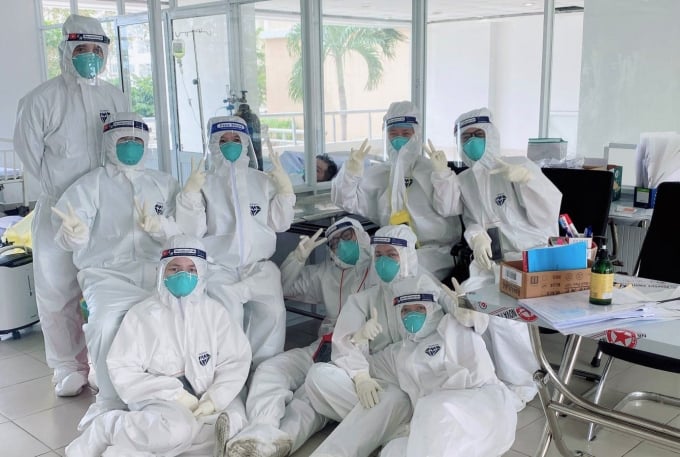
COVID-19 no longer being a group A infectious disease is a highlight in 2023 (photo TL).
On October 25, 2023, the Secretariat issued Directive No. 25-CT/TW on continuing to consolidate, improve and enhance the quality of grassroots health care activities in the new situation. With the view that grassroots health care is the foundation, the Directive aims to: firmly develop the grassroots health care system, build a widespread health care network close to the people; improve the quality and efficiency of grassroots health care activities; improve the effectiveness of state management and coordination responsibilities of agencies and organizations in developing and implementing policies, laws and regulations on grassroots health care.
On June 24, 2023, the National Assembly issued Resolution No. 99/2023/QH15 on "Thematic supervision of the mobilization, management and use of resources for COVID-19 prevention and control; implementation of policies and laws on grassroots health and preventive medicine", along with Directive 25-CT/TW, opening up new development directions for grassroots health and preventive medicine.
Accordingly, grassroots health care ensures the full implementation of primary health care functions, medical examination and treatment, disease prevention and control, and health promotion to ensure that all people receive health care in the community. Promote the implementation of the goal of universal health coverage. Innovate the financial mechanism and payment mechanism of the health insurance fund towards increasing spending on grassroots health care... Preventive medicine continues to focus on implementing the tasks of preventing and controlling infectious diseases, non-communicable diseases, diseases of unknown causes, controlling risk factors, improving health, food safety, community nutrition, environmental health and hygiene, school health, health care for workers, the elderly, mothers and children, population, health education and communication, etc.
2. The National Assembly passed the Law on Medical Examination and Treatment (amended)
On January 9, 2023, at the 2nd Extraordinary Session of the 15th Term, the National Assembly passed the Law on Medical Examination and Treatment (amended). The Law is built with patients at the center of all activities providing medical examination and treatment services; enhancing the effectiveness, efficiency, order, discipline and discipline of state management of medical examination and treatment activities; applying for the first time the National Medical Council model to improve the quality of medical examination and treatment and international integration. The Law amends and supplements regulations on State policies and a number of administrative procedures in the direction of maximally simplifying the sequences, processes, procedures and records; reducing the time for consideration to issue new, reissue, extend and adjust practice licenses, operating licenses, etc. to create favorable conditions for patients, practitioners and medical examination and treatment facilities during the process of medical examination and treatment.
3. The Ministry of Health advises and develops many policies to remove difficulties in bidding and purchasing drugs, medical supplies and vaccines.
Overcoming difficulties and challenges after 3 years of the COVID-19 pandemic, in 2023, the Ministry of Health advised the National Assembly and the Government to issue many important legal documents, removing difficulties in bidding, purchasing drugs, medical supplies, vaccines, etc., promptly meeting the requirements of medical examination and treatment, ensuring health care for people. Specifically:
- On January 9, 2023, the National Assembly issued Resolution No. 80/2023/QH15 on continuing to implement a number of policies in the prevention and control of the COVID-19 pandemic and the use of drug and pharmaceutical ingredient circulation registration certificates that expire from January 1, 2023 to December 31, 2024.
- On March 3, 2023, the Government issued Decree No. 07/2023/ND-CP amending and supplementing a number of articles of Decree No. 98/2021/ND-CP dated November 8, 2021 on medical equipment management. It has resolved the shortcomings, limitations and inadequacies in the management of medical equipment in the recent past, gradually perfecting the state management institution on medical equipment, meeting practical requirements and international integration requirements in the field of medical equipment, including: regulations on extending the validity of import licenses and circulation numbers of medical equipment; promoting the issuance of registration numbers for circulation of medical equipment and removing difficulties in revoking circulation numbers and handling medical equipment with revoked circulation numbers; amending regulations on import and export and temporary import and re-export of medical equipment; Regulations only require price declaration for medical equipment when there are unusual fluctuations in prices that affect the supply of medical equipment, the ability of buyers to pay, the ability of the Health Insurance Fund to pay...
- On March 4, 2023, the Government issued Resolution No. 30/NQ-CP on continuing to implement solutions to ensure medicines and medical equipment. Resolution No. 30/NQ-CP amends Clause 4 of Resolution No. 144/NQ-CP dated November 5, 2022 with important contents such as: Allowing continued payment of medical examination and treatment costs under health insurance for technical services performed by machines provided by contractors after winning the bid for materials and chemicals according to the results of contractor selection approved by competent authorities in accordance with the provisions of the Law on Bidding; allowing medical facilities to pilot the application of guidelines on developing bidding package prices in 2023; assigning the Ministry of Health to develop and promulgate guidelines on developing bidding package prices for medical equipment.
- Pursuant to Resolution No. 30/NQ-CP of the Government and related documents issued previously, on June 30, 2023, the Ministry of Health issued Circular No. 14/2023/TT-BYT stipulating the order and procedures for developing bidding packages for the procurement of goods and provision of services in the field of medical equipment at public health facilities; The Circular has created a legal corridor, overcome difficulties and obstacles, clearly defined the authority and responsibility in each implementation content, so that units can feel secure, proactive, and actively implement, helping public health facilities to procure medical equipment, components, replacement materials as well as services in the field of medical equipment.
- On July 10, 2023, the Government issued Resolution No. 98/NQ-CP on allocating the 2023 central budget to the Ministry of Health to purchase vaccines for the Expanded Immunization Program.
- On December 30, 2023, the Government issued Resolution No. 224/NQ-CP on ensuring funding for vaccine procurement for the Expanded Immunization Program.
4. Removing the mechanism for payment of medical examination and treatment costs
The Ministry of Health advised the Government to issue Decree No. 75/2023/ND-CP amending and supplementing Decree No. 146/2018/ND-CP, removing difficulties in payment of health insurance (HI) medical examination and treatment costs; increasing the benefit level from 80% to 100% of health insurance medical examination and treatment costs for some groups of subjects; enhancing the role and responsibility of ministries, branches, and medical examination and treatment facilities in managing and effectively using the HI fund.
Decree No. 75 adds 02 groups of subjects whose health insurance premiums are paid by the state budget and supported by the health insurance premiums, including: people in safe zone communes and revolutionary safety zones (ATK) to the group paid by the state budget; ethnic minorities living in communes that have just escaped from difficult and extremely difficult areas in ethnic minority and mountainous areas in the period of 2021-2025 according to the Prime Minister's decision to the group supported by the state budget to pay health insurance premiums (supported at least 70% of the premium for 36 months from November 1, 2023). This regulation is extremely important, creating favorable conditions for all people, especially disadvantaged groups, to have the opportunity to participate in and enjoy health insurance policies, thereby contributing to maintaining and developing health insurance coverage. The regulation that the State budget continues to support for a period of time after escaping poverty so that people can accumulate and have enough economic conditions to participate in health insurance demonstrates the Government's policy of ensuring social security and sustainable poverty reduction.
The Ministry of Health issued Circular No. 13/2023/TT-BYT dated June 29, 2023 regulating the price framework and pricing method for on-demand medical examination and treatment provided by State medical examination and treatment facilities, creating a legal corridor for on-demand medical examination and treatment activities.
5. UNESCO honors the great physician Hai Thuong Lan Ong Le Huu Trac
At the 42nd session of the General Assembly of the United Nations Educational, Scientific and Cultural Organization (UNESCO) on November 21, a resolution was passed approving the list of "Cultural Celebrities and Historical Events for the 2024-2025 school year", including the dossier commemorating the 300th anniversary of the birth of the great physician Hai Thuong Lan Ong Le Huu Trac. The resolution passed by UNESCO is the clearest affirmation of Vietnam's great contributions in the fields of education, health, culture and society, and at the same time demonstrates the spread of Vietnamese talent and intelligence in the international arena.
Vietnamese traditional medicine, of which the great physician Hai Thuong Lan Ong Le Huu Trac is a representative, has been formed and developed over thousands of years along with the development of national history. Generations of physicians have drawn up and created thousands of prescriptions and treatment methods, including non-drug treatments such as acupuncture, acupressure, qigong, health preservation, etc., creating a unique feature of Vietnamese wisdom, trusted and highly appreciated by people in the country and the world. The event of UNESCO honoring the great physician Hai Thuong Lan Ong Le Huu Trac once again affirms the position of traditional medicine, not only in Vietnam but also in the world.
Previously, on December 25, 2019, the Government issued Decision No. 1893/QD-TTg on the Program for developing traditional medicine and pharmacy, combining traditional medicine and pharmacy with modern medicine and pharmacy by 2030; Accordingly, the goal by 2030 is: 100% of provinces and cities establish traditional medicine and pharmacy general hospitals; 95% of modern hospitals establish traditional medicine and pharmacy departments; 100% of commune health stations use traditional medicine and pharmacy in health care and medical examination and treatment for people...
6. COVID-19 officially moves to Group B infectious disease, recognizing Vietnam's success in disease prevention and control
According to Decision No. 3896/QD-BYT dated October 19, 2023 of the Ministry of Health, from October 20, COVID-19 is no longer a group A infectious disease but has been transferred to group B according to the Law on Prevention and Control of Infectious Diseases 2007; This is an important milestone recognizing Vietnam's success in preventing and controlling the COVID-19 pandemic.
Along with continuing to maintain the achievements in preventing and fighting the COVID-19 pandemic, the entire industry has effectively responded to other emerging epidemics, as well as infectious diseases, not allowing "epidemics to overlap with epidemics". Regularly assess, analyze, assess, and forecast the epidemic situation. Prepare scenarios and response plans for all epidemic situations. Strengthen communication, raise awareness among people and the community about prevention, health improvement, focusing on nutrition, protection, and physical training.
7. The health sector strongly reforms administration and digitally transforms
Administrative reform and digital transformation at the Ministry of Health and the entire health sector in 2023 have had strong changes:
- The Party Committee of the Ministry of Health issued Resolution No. 157-NQ/BCSĐ dated February 3, 2023 on Digital transformation of healthcare by 2025, with a vision to 2030;
- The Ministry of Health has completed the Steering Committee for Digital Transformation, and 100% of units under the Ministry of Health have established a Digital Transformation Team.
- Connecting 63 Departments of Health, 63 Social Insurance agencies, 99.5% of medical examination and treatment facilities nationwide with the appraisal system of Vietnam Social Insurance. 100% of hospitals have deployed the hospital information system.
- 100% of medical examination and treatment facilities nationwide have implemented health insurance examination and treatment using chip-embedded citizen identification cards, with over 49.6 million successful searches of health insurance card information using chip-embedded citizen identification cards to serve health insurance examination and treatment procedures.
- 63/63 Departments of Health of provinces and centrally-run cities, 4,160 medical examination and treatment facilities have deployed electronic prescriptions and linked prescriptions with the national prescription system.
- 63/63 provinces and cities nationwide have deployed the electronic health statistics system, with most units entering complete data; Maintain updating of 5 reporting indicators connected to the Government Reporting Information System.
At the same time: 100% of the Ministry of Health's work records are performed and managed in an electronic environment. 100% of leaders from the Department and Bureau level and above of the Ministry of Health are granted digital signatures;
100% of administrative procedures under the authority of the Ministry of Health are provided online; 100% (161/161) administrative procedures are eligible for full-process online public services;
100% of medical examination and treatment facilities have cashless payment services in various forms (bank transfer, QR code scanning, e-wallet, medical examination and treatment cards connected to banks...) to ensure convenience for people when going to see a doctor; 100% of medical personnel training facilities pay tuition fees in cashless form.
- Continue to use the remote medical examination and treatment system at more than 1,000 medical facilities nationwide; promote the application of remote medical examination and treatment consultation, support people...
8. Many breakthroughs in surgery, treatment, improving the quality of medical examination and treatment to serve the people
2023 marks the year of serving many important events of the Party and State in medical examination and treatment, food hygiene and safety, epidemic prevention and emergency response of the health sector.
Medical examination and treatment have recovered after more than 3 years of preventing the COVID-19 pandemic. In 2023, the number of outpatient and inpatient visits increased at hospitals, with some hospitals seeing an increase of more than 50% compared to the same period in 2022. The rate of patient satisfaction reached over 90%.
Many complicated surgeries and treatments have been performed at many hospitals across the country. Typical examples include the simultaneous heart and kidney transplant performed by the medical team of the Vietnam - Germany Friendship Hospital on February 15; the cross-Vietnam organ transplant performed on February 26 by Cho Ray Hospital and Vietnam - Germany Friendship Hospital; the laparoscopic surgery to treat a choledochal cyst for an Australian patient at Saint Paul Hospital (Vietnam is one of two countries in the world implementing single-port laparoscopic surgery in the treatment of many dangerous diseases); the nearly 8-hour overnight surgery to reattach the severed hand of a 21-month-old baby performed by doctors from Hanoi Medical University Hospital; the valve-in-valve replacement technique performed for the first time in Vietnam by the National Heart Institute; The baby boy was born at 25 weeks of pregnancy, weighing only 600 grams with congenital intestinal stenosis, and was saved by a team of doctors from two units, the Central Maternity Hospital and the Vietnam - Germany Friendship Hospital...
The above achievements confirm the increasingly high level of doctors and the remarkable development of Vietnamese medicine. This development not only meets the medical examination and treatment needs of the people in the country but also attracts more and more foreign patients to Vietnam for medical examination and treatment.
9. Vietnam is the leading country in Asia-Pacific in HIV pre-exposure prophylaxis (PrEP), contributing to reducing the risk of HIV infection.
In July 2023, the Vietnamese Ministry of Health delegation attended the 12th International Conference on HIV Science (IAS) in Australia. At this event, Vietnam was the first country in the Asia-Pacific region to commit to the United Nations 90-90-90 target by 2020 (90% of people living with HIV know their HIV status, 90% of people diagnosed with HIV are treated with antiretroviral drugs (ARVs) and 90% of people receiving ARVs have low viral loads (below 1000 copies/ml) to live healthy lives and reduce the risk of transmitting HIV to others.
10. External activities of the health sector are promoted.
In 2023, continuing to effectively implement the foreign policy of the 13th Party Congress, the health sector has carried out many diverse and practical foreign affairs activities and achieved many important results, contributing to strengthening international integration and developing the health system in both depth and breadth.
Domestically, the Ministry of Health has officially welcomed 3 delegations of Health Ministers from various countries to visit Vietnam, signed 4 international agreements at the ministerial level (Memorandum of Understanding on cooperation with the Lao Ministry of Health, the Danish Ministry of Health, the US Department of Health and Human Services, Harvard Medical University, and a diplomatic note on investment cooperation in health care with the Japanese Government) and many Memorandums of Understanding on cooperation at the unit level signed with foreign partners to promote cooperation in many fields. Over 1,800 conferences and technical seminars with foreign elements have been held domestically, especially the 49th Meeting of the Global Fund's Executive Council, which was held from May 8, 2023 to May 12, 2023 in Hanoi with the participation of many senior health officials around the world and many donors, thereby increasing investment attraction and financial support for the prevention of 3 diseases: Tuberculosis, Malaria and HIV/AIDS in Vietnam.
In 2023, after many years of being affected by the COVID-19 pandemic, the Ministry of Health organized an International Health Partnership Group meeting with over 100 representatives, agencies and international organizations attending to discuss and share the priority goals of the health sector after the pandemic as well as call for international cooperation in the health sector.
The leaders of the Ministry of Health have increased foreign affairs activities, attended and delivered speeches at many important international events and forums such as: HIV/AIDS pandemic prevention, tuberculosis prevention at the United Nations General Assembly, infectious disease prevention at the World Health Organization General Assembly, climate change prevention at the COP28 Conference on climate change, attending the 42nd session of the UNESCO General Assembly...
Vaccine diplomacy will also continue to be promoted. In 2023, Vietnam will receive 432,000 doses of Pfizer COVID-19 vaccine for people aged 12 and above supported by COVAX; vaccines in Routine Immunization include: 185,700 doses of DPT-VGB-Hib vaccine (5 in 1) supported by WHO and UNICEF; 490,600 doses of DPT-VGB-Hib vaccine (5 in 1) supported by the Australian Government.
Source



![[Photo] Overcoming all difficulties, speeding up construction progress of Hoa Binh Hydropower Plant Expansion Project](https://vstatic.vietnam.vn/vietnam/resource/IMAGE/2025/4/12/bff04b551e98484c84d74c8faa3526e0)
![[Photo] Closing of the 11th Conference of the 13th Central Committee of the Communist Party of Vietnam](https://vstatic.vietnam.vn/vietnam/resource/IMAGE/2025/4/12/114b57fe6e9b4814a5ddfacf6dfe5b7f)



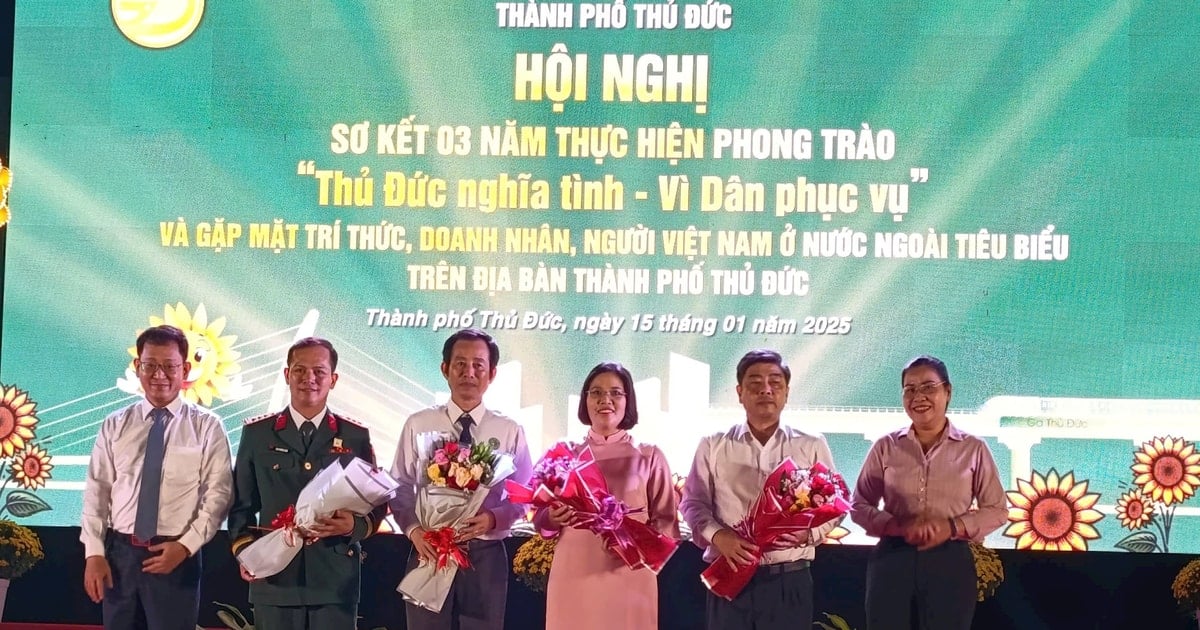








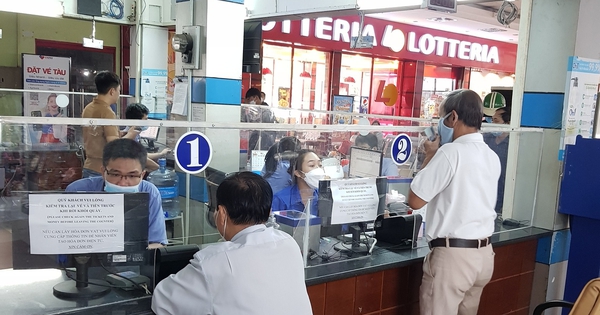




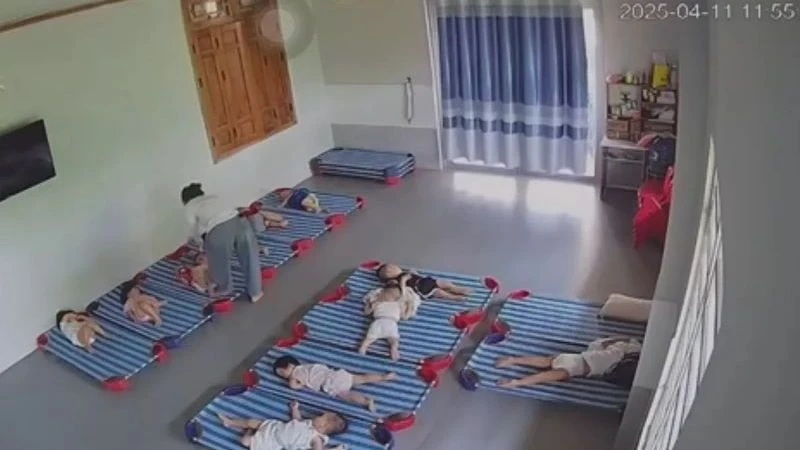
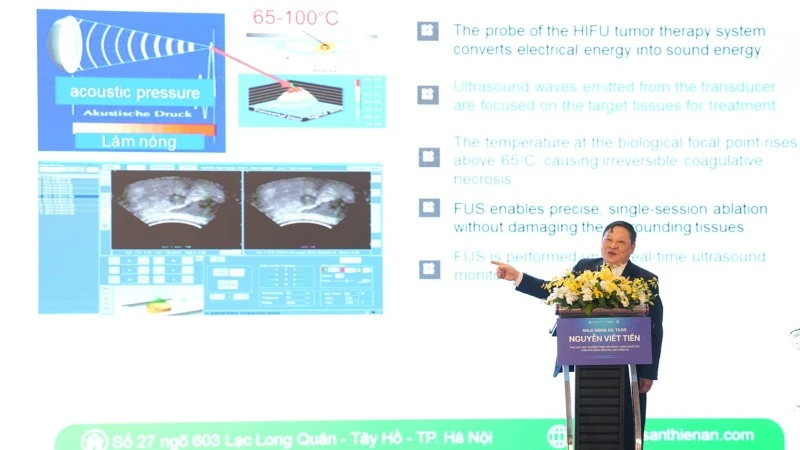
![[Video] First time in Vietnam: Successful implantation of 3rd generation partial artificial heart](https://vstatic.vietnam.vn/vietnam/resource/IMAGE/2025/4/12/8817412224094c68ba2c744b7bd5cfea)







































































Comment (0)